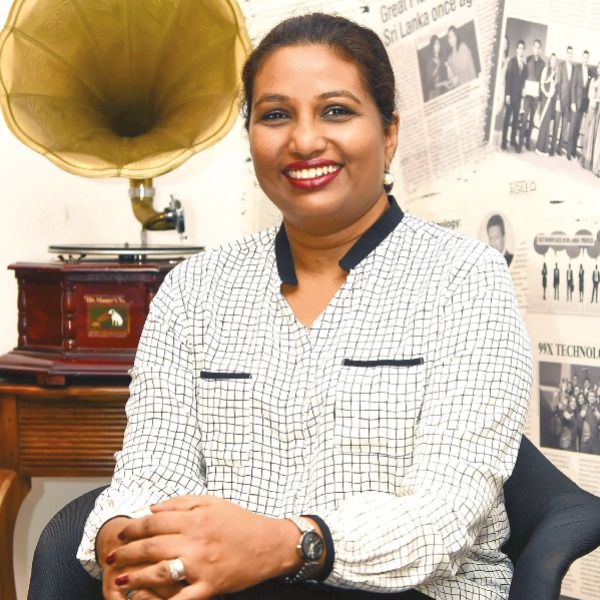99x
 Q: What is the extent of women’s participation in the local IT industry?
Q: What is the extent of women’s participation in the local IT industry?
A: In 2019, the requirement for IT graduates was 21,000 but the supply from public and private universities was merely 9,000. About a third of the IT workforce is female – up from 22 percent in 2010.
But at senior management levels, these figures are very low. Moreover, only around 10 percent of startups in Sri Lanka are female owned. Female participation must increase, given the higher share of women in the population.
To bring about change, more females should be introduced to IT by addressing societal and parental perceptions of these careers. Schools can do a great deal in this regard.
We need to shatter any myths about the field that could deter women from entering it. There are many facets – such as quality assurance, business analysis, usability design, project management and so on – of the domain that are also attractive.
Q: How do you view the business climate for working women?
A: There is a consensus about attracting more women to the industry and the general perception is improving. Most companies have gender equality policies so we’re moving in the right direction. But more change is needed and at a quicker pace.
Senior role models who have been through the grind can share their experiences to mentor and encourage junior women as this helps them overcome barriers faster.
The Sri Lanka Association of Software and Service Companies (SLASSCOM) Women Technopreneurs Forum was set up to support, mentor and grow women ‘technopreneurs’ with the potential to generate export revenue.
Meanwhile, the Women’s Chamber for Digital Sri Lanka runs programmes to close the digital gender divide, from school through university levels, as well as corporates and startups.
Q: And how do you view women’s representation at the board level?
A: It’s still low in Sri Lanka and the percentage should increase based on merit, not quotas. Statistics indicate that companies with women on their boards perform better as they bring skills such as balanced risk taking, ethics and values, and the benefits of diversity to the table.
99x works with Scandinavian customers who request gender balanced teams so companies need to proactively offer equal opportunities. Female leaders should assert themselves but as women, we need to promote other women to be fearless and move forward to take up leadership positions.
Q: How can the loss of women at mid-career be reduced?
A: I too had to make a major career decision when my children were young. Flexible arrangements, part-time work and appropriate crèche facilities are needed so women can continue their careers.
Thanks to COVID-19, many companies shifted to working from home (WFH) arrangements, which will benefit women who might have to quit otherwise. Corporates can look at hybrid work models to retain such employees.
Q: What is your vision for businesswomen in Sri Lanka?
A: I would like to see a near equal contribution to the economy, and that their potential is recognised and they’re given opportunities.




